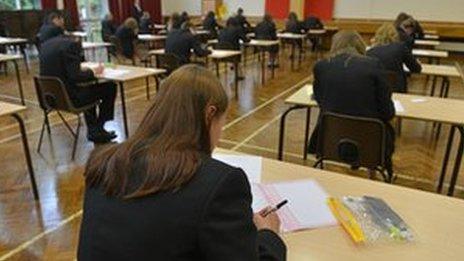Committee express concern over changes to GCSE grading in England
- Published
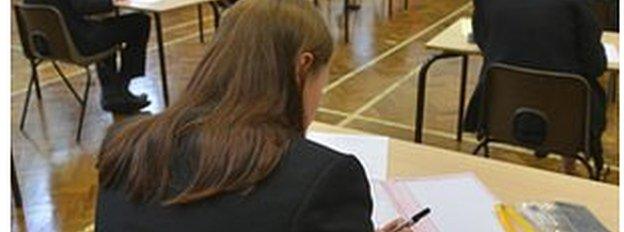
The majority of exams in Northern Ireland are set and marked by the local CCEA board
Members of the education committee at Stormont have expressed concerns that young people in Northern Ireland will be disadvantaged due to changes in the GCSE grading system in England.
Students in England beginning GCSE courses in English and Maths this month will get numerical, instead of alphabetical grades, when they get their results in 2017.
Instead of getting grades at A* - G, they will be given grades on a nine-point scale from 1-9, where nine is the top grade and one the lowest.
Education Minister John O'Dowd has not yet decided whether to change GCSE grading in Northern Ireland to match the English system, or to maintain the current alphabetical system.
Each year, most students in Northern Ireland sit GCSE exams set by the Council for the Curriculum, Examinations and Assessment (CCEA).
Unless the education minister decides otherwise, these will continue to be graded A* - G.
However, a substantial minority of Northern Ireland students each year sit GCSE exams set by English examination boards.
In 2015, for example, just under 75% of GCSE entries in Northern Ireland were through CCEA, while around 25% were through English exam boards.
If that pattern persists, it means that from 2017, some students in Northern Ireland will receive results with a mixture of alphabetical and numerical grades.
The bulk of the changes to GCSE grading in England will come into effect for students receiving their results in 2018.
The committee has been hearing evidence from officials from the Department of Education and CCEA on the changes in England.
A consultation carried out by the department found that around two thirds of those who responded wanted to retain the current alphabetical system, while around one third wanted change.
'Divergence'
However, slightly more parents who responded wanted to change to the English system, rather than to maintain the current system.
Members of the committee expressed concerns over Northern Ireland's divergence.
The committee chair, DUP MLA Peter Weir, said that Northern Ireland might be seen to be "out of step" if there was no change to GCSE grades.
"What we have at present, assuming the changes go through in England, means that the status quo may not be fit for purpose," he said.
He suggested that an A** grade may have to be introduced to make Northern Ireland's system compatible with England.
Other members said that local students might be disadvantaged when applying for university courses if GCSE results were taken into account, and also expressed concern that employers may not be clear about comparisons between grades given under each system.
The committee were also told that there had been no assessment yet of what any potential changes to grading would cost.
Examinations bodies in Wales have decided to retain the alphabetical grading system, while Scottish pupils sit entirely separate examinations.
- Published20 August 2015

- Published20 August 2015

- Published20 August 2015
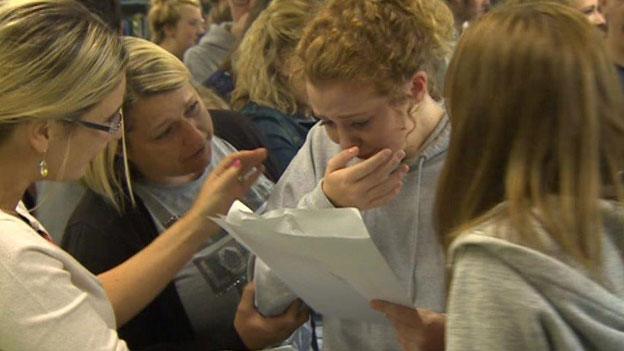
- Published20 August 2015
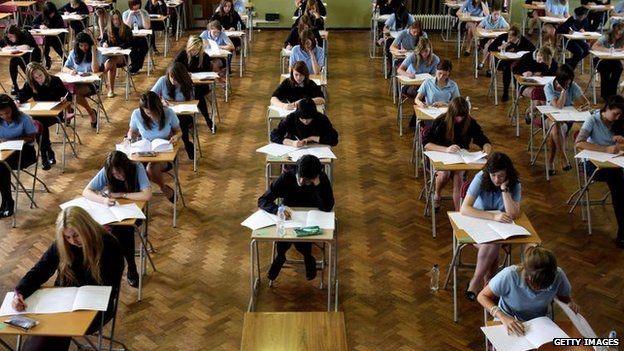
- Published21 August 2014
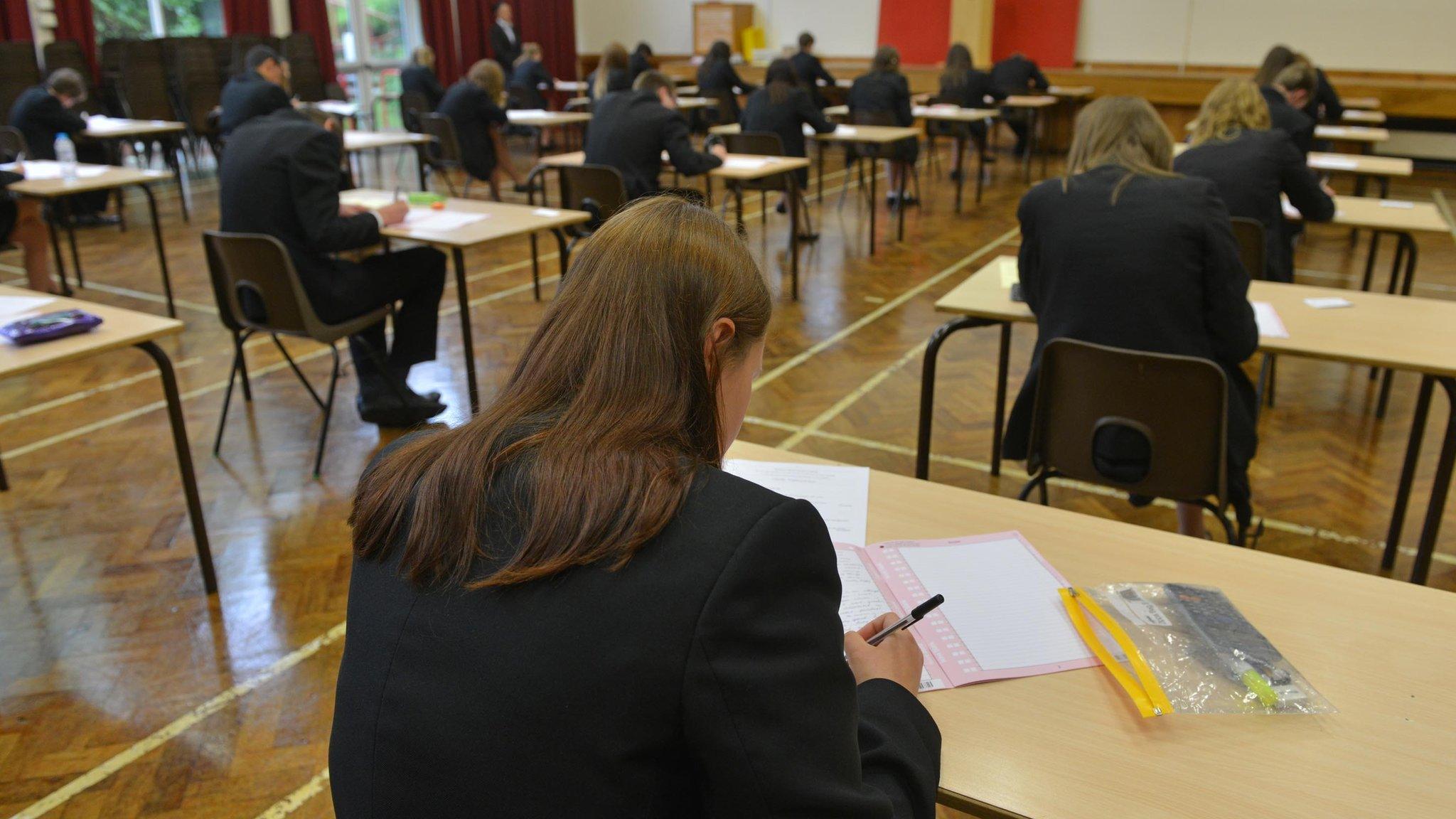
- Published21 August 2014
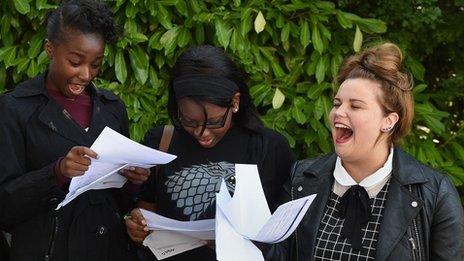
- Published22 August 2013

- Published23 August 2012
